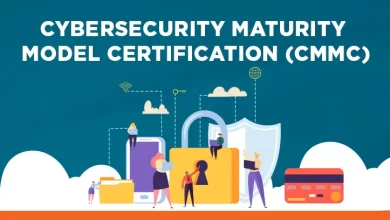The Internet 2.0 Conference is preparing to host its Winter Edition in Las Vegas and Dubai, where several industry experts and tech leaders will unite to explore the future of technology. This three-day conference offers many opportunities to learn, get inspired, and grow your business, from big data analytics and cloud computing to enterprise mobility.
Internet 2.0 Conference’s Agenda Highlights Fraud
The Internet 2.0 Conference’s upcoming edition will include well-known attendees and fresh faces who will grace the event with their knowledge of the technology and inspiring stories. The attendees will be given a chance to learn from renowned speakers as they indulge in exclusive discussions about tech-driven topics such as big data analytics and fraud prevention tactics.
Why is fraud prevention included in the Internet 2.0 Conference’s agenda? Fraud is a massive issue, regardless of the business niche. But for online retailers, it is a topic of hot discussion. Let’s understand why.
It’s estimated that companies lose $100 billion annually due to fraud, which comes to around 3% of all e-commerce transactions. This figure is estimated to see a spike in the future as more people turn to the internet to indulge in business and make purchases. It goes without saying that with the advancement of technology, adversaries committing fraud will also increase. This is why eCommerce businesses must walk hand-in-hand with these trends and learn not to fall prey to fraudsters.
The Internet 2.0 Conference aims to bring together corporate executives and industry specialists to debate the most recent trends in fraud prevention in light of these advances. In addition to discussing how businesses might lessen their dependence on external services to have more control over transactions, it will explore ways businesses can defend themselves against assaults of fraudsters.
Big Data Analytics Garnering A Lot Of Attention, Particularly From Cybersecurity Experts
Here’s why:
- It helps businesses understand their consumers’ preferences and wants, which eventually enhances their interaction with them. By doing so, consumers will feel valued and more loyal to the brand, increasing the business’s revenue.
- Big data analytics offers insights into what is happening within a firm at any given time, enabling it to detect fraud earlier than ever! Let’s say, for instance, that a vast number of transactions are coming from one area at an odd time (e.g., during non-working hours). In that situation, this might be a sign that someone compromised a worker’s computer or account credentials so they could engage in fraudulent activity at work without anyone else seeing it.
- By using big data analytics, businesses can better understand their customers. For example, suppose someone buys many products from you but never makes a purchase again after completing their first order. In that case, the chances are they can utilize your company to resell products on eBay or Amazon. As a result of the client switching to being someone else’s customer and no longer purchasing products from you, you lose money.
The History Of Big Data Analytics
The term data science was introduced around the 1950s. It refers to a discipline that combines computer science, statistics, and other fields to extract knowledge from data. Data scientists use statistical modeling to predict outcomes, create visualizations of complex systems and develop algorithms for machine learning.
The existence of big data can be traced to the 1990s, though many credit John Mashey for popularizing it. A significant quantity of data, known as big data, is currently being generated owing to all the massive online transactions. As data gets more extensive and complex to comprehend, it becomes challenging for companies to make sense of it. Hence they utilize standard tools, techniques, and methodologies to analyze this large amount of information at once.
In short, big data analytics analyzes data from many different sources to identify patterns, trends, and other pertinent details about a business or other organization. Data scientists can use big data analytics to improve customer understanding and help enterprises to make more profitable decisions.
Big Data Analytics Against Digital Fraud: An Explanation
Big data is a potent weapon in the fight against fraud which is why the Internet 2.0 Conference included this in its agenda in the first place, to enhance awareness of the budding tech enthusiasts. According to a few experts in the tech world, the more data we have, the better our algorithms will detect and prevent fraud.
Additionally, it is possible to identify future fraudsters based on their actions and those of other people who are already fraud victims. Big data finds its use even in the healthcare sector. By examining demographic data such as age, gender, and zip code along with clinical details about particular medical procedures carried out by a provider over time, big data analytics can assist healthcare providers in identifying patients who may be at risk of committing or becoming victims of healthcare identity theft.
Finally, by analyzing metrics like sales volume and payment histories from e-commerce websites and other sources such as social media—it’s possible to create models that predict whether someone is likely to commit digital (or any) fraud against your company’s reputation in the future.
What Can Accelerate Its Adoption, According To The Internet 2.0 Conference’s Experts
Tech events in the USA organized as in-person sessions of the Internet 2.0 Conference saw several brilliant minds of the industry with their respective unique stories of the milestones they covered. A few of them shared that the future of big data analytics could be accelerated by:
- Enhanced awareness of the benefits of big data analytics
- More companies are investing in big data analytics (e.g., through software and hardware)
- The emergence of new, more efficient, and accurate algorithms
Conclusion
The Internet 2.0 Conference is an important event for digital fraud prevention, as it highlights the role of big data analytics in this fight. The speakers are experts in different fields and bring a wealth of knowledge to help businesses develop better strategies to detect fraud earlier and stop fraudulent activity before it even begins. The conference also allows businesses to network with their peers and learn as they share their experiences. This is important because fraud is a complex issue requiring the collaboration of many different parties—including IT and security professionals, legal experts, law enforcement agencies, and industry associations.
The conference is filled with tremendous opportunities for businesses to learn about the latest technologies to help them fight fraud. For example, there will be sessions on how AI and machine learning can detect fraudulent activity even faster than humans alone. The speakers will also discuss the importance of security technology in fighting crime online, such as data encryption and biometrics. So follow up the Internet 2.0 Conference as it hosts its Winter Edition of tech events in the USA and Dubai to get updated on the tech trends.
Let’s Discuss NFT Scams And Prevention Techniques With The Internet 2.0 Conference





